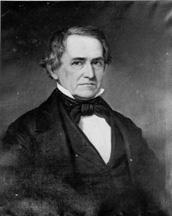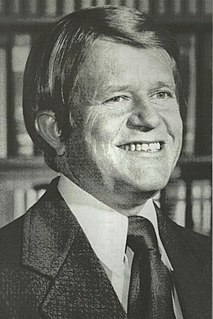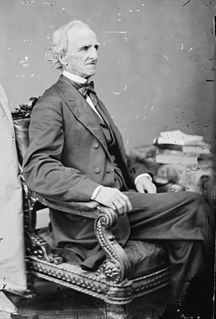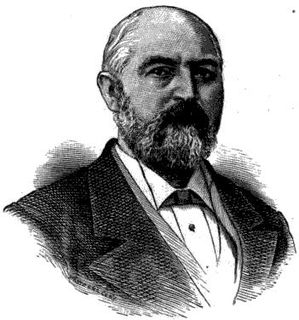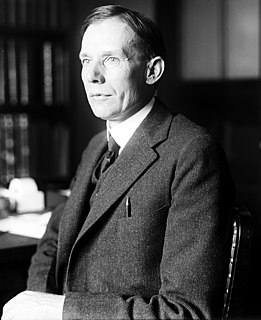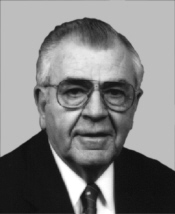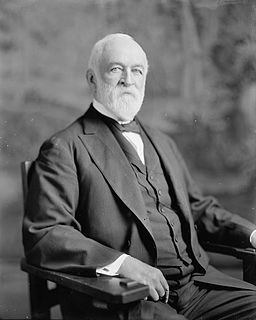Hallett Sydney Ward (August 31, 1870 – March 31, 1956) was a Democratic U.S. Congressman from North Carolina between 1921 and 1925.

The United States House of Representatives is the lower chamber of the United States Congress, the Senate being the upper chamber. Together they compose the legislature of the United States.

North Carolina is a state in the southeastern region of the United States. It borders South Carolina and Georgia to the south, Tennessee to the west, Virginia to the north, and the Atlantic Ocean to the east. North Carolina is the 28th-most extensive and the 9th-most populous of the U.S. states. The state is divided into 100 counties. The capital is Raleigh, which along with Durham and Chapel Hill is home to the largest research park in the United States. The most populous municipality is Charlotte, which is the second-largest banking center in the United States after New York City.
Born near Gatesville, North Carolina, Ward attended public schools in Gates County and then studied law at the University of North Carolina at Chapel Hill. He graduated and was admitted to the bar in 1893, beginning his law practice in Winton, North Carolina.
Gatesville is a town in Gates County, North Carolina, United States. The population was 321 at the 2010 census. It is the county seat of Gates County.

Gates County is a small, rural county located in the northeast portion of the U.S. state of North Carolina, on the border with Virginia. As of the 2010 census, the population was 12,197. Its county seat is Gatesville.

The University of North Carolina at Chapel Hill (UNC), also known as UNC-Chapel Hill, Chapel Hill, North Carolina, or simply Carolina is a public research university in Chapel Hill, North Carolina. It is the flagship of the 17 campuses of the University of North Carolina system. After being chartered in 1789, the university first began enrolling students in 1795, which also allows it to be one of three schools to claim the title of the oldest public university in the United States. Among the claimants, the University of North Carolina at Chapel Hill is the only one to have held classes and graduated students as a public university in the eighteenth century.
Ward was first elected to the North Carolina Senate in 1899 and was sent back for a second term in 1901. He served as mayor of the town of Plymouth, North Carolina from 1902 to 1903. In 1904, moved to the town of Washington, North Carolina, where he was named solicitor for the first judicial district of North Carolina, a post he held until 1910.
Plymouth is the largest town in Washington County, North Carolina, United States. The population was 3,878 at the 2010 census. It is the county seat of Washington County. Plymouth is located on the Roanoke River about seven miles (11 km) upriver from its mouth into the Albemarle Sound in North Carolina's Inner Banks region.

Washington, commonly known as The Original Washington or Little Washington, is a city in Beaufort County, North Carolina, United States, located on the northern bank of the Pamlico River. The population was 9,744 at the 2010 census. It is the county seat of Beaufort County. The closest major city is Greenville, approximately 20 miles (32 km) to the west.
In 1920, Ward was elected to the 67th United States Congress; he would serve two terms in Washington, DC before declining renomination in 1924, after which he returned to his law practice in North Carolina. He served one additional term in the North Carolina Senate in 1931, and died in Washington, North Carolina in 1956.

The Sixty-seventh United States Congress was a meeting of the legislative branch of the United States federal government, consisting of the United States Senate and the United States House of Representatives. It met in Washington, D.C. from March 4, 1921, to March 4, 1923, during the first two years of Warren Harding's presidency. The apportionment of seats in the House of Representatives was based on the Thirteenth Census of the United States in 1910. Both chambers had a Republican majority.


